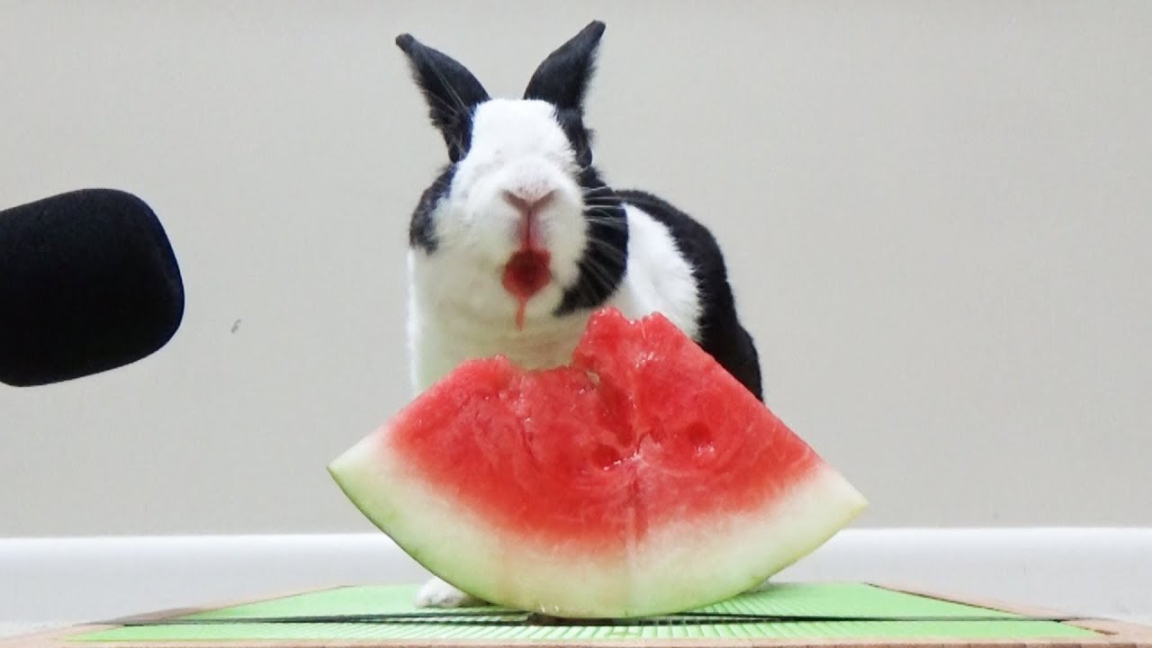Can Rabbits Eat Melons?
Rabbits are herbivores and their diet primarily consists of hay, fresh vegetables, and fruits. While hay should make up the majority of their diet, fruits can be offered as a tasty treat in moderation. Melons, in particular, can be a refreshing and nutritious addition to a rabbit’s diet. However, it is important to understand the dos and don’ts of feeding melons to rabbits to ensure their health and well-being.

Benefits of Melons for Rabbits
Melons, such as watermelon, cantaloupe, and honeydew, can provide several benefits to rabbits when fed in appropriate quantities:
- Hydration: Melons have a high water content, making them a great choice for keeping rabbits hydrated, especially during hot summer months.
- Nutritional Value: Melons are rich in vitamins A and C, as well as potassium. These nutrients are essential for a rabbit’s overall health and immune system.
- Enrichment: Offering melons as occasional treats can provide mental stimulation and enrichment for rabbits, as they enjoy the taste and texture of these fruits.
Feeding Melons to Rabbits
While melons can be a healthy addition to a rabbit’s diet, it is crucial to follow these guidelines:
- Moderation is key: Melons should be considered a treat and should only be given to rabbits occasionally. Feeding too much melon can upset their digestive system, leading to diarrhea and other health issues.
- Fresh and ripe: Always select fresh and ripe melons for your rabbit. Avoid feeding overripe or moldy melons, as they can cause gastrointestinal problems.
- Remove seeds and rind: Before offering melons to your rabbit, ensure to remove all seeds and rind. Seeds can pose a choking hazard, while the rind can be difficult for rabbits to digest.
- Introduce gradually: If it’s your rabbit’s first time trying melon, introduce it slowly and in small quantities. Monitor their reaction and digestion to ensure they tolerate it well.
- Monitor quantity: Limit the amount of melon given to your rabbit to avoid nutritional imbalances. Too much fruit can contribute to obesity and other health issues in rabbits.
Remember, a rabbit’s diet should primarily consist of hay, fresh vegetables, and a limited amount of fruits. Melons are a supplement and should not replace these essential components of their diet.
FAQs about Feeding Melons to Rabbits
1. Can rabbits eat watermelon seeds?
No, rabbits should not eat watermelon seeds. Seeds can cause digestive problems and potentially lead to intestinal blockages. Always remove seeds before offering watermelon to your rabbit.
2. Can rabbits eat the rind of a melon?
No, rabbits should not eat the rind of a melon. The rough texture of the rind can be difficult for rabbits to chew and digest. It is important to remove the rind before offering melons to your rabbit.
3. How often can I feed melons to my rabbit?
Melons should only be given to rabbits occasionally, as a treat. It is recommended to offer melon as a snack no more than once or twice a week to prevent digestive issues and ensure a balanced diet.
4. Are all melons safe for rabbits?
Most melons, such as watermelon, cantaloupe, and honeydew, are safe for rabbits to eat in moderation. However, make sure to avoid feeding rabbits exotic or uncommon melon varieties, as they may have different nutritional profiles or potential toxicity.
Melons can be a healthy and enjoyable treat for rabbits when fed in moderation. They provide hydration, essential nutrients, and mental stimulation for our furry friends. Remember to always remove seeds and rind, introduce melons gradually, and monitor your rabbit’s reaction. As long as you follow these guidelines, your rabbit can safely enjoy the occasional slice of melon.
Related Articles…
Copyright Notice:
This website utilizes images found online, all copyrights are retained by their original owners. If you would like an image removed, kindly contact us.